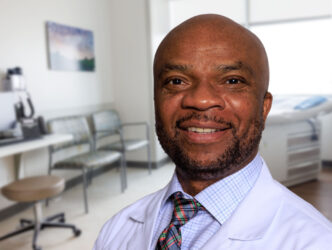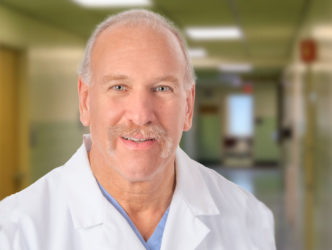The holiday season is a time for people to be near family; for some it may be the only time in the entire year that loved ones get together. This can bring pride, joy and happiness to moms, dads, siblings or even extended family members like aunts or uncles.
On the other hand, the holiday season can bring unwanted stress from expectations that we tend to put onto people. Living in North Dakota gives us a different type of setting during the holiday season due to the cold temperatures and shorter days. This can invite more opportunities to go to bars to see people or drink more alcohol in social settings.
The bar can be a place of community for people who are traveling home to see friends or for an escape to have alone time with a trusted friend(s). All of which can be acceptable reasons to go out, but goers should be weary of the way that coping with alcohol can creep in.
The parties at work, home or with friends tend to start well before midnight and often involve more than the recommended amount of alcohol, which can impact the way a person copes with stress.
Trinity Health Staff, recommends that if a person chooses to drink during the holidays to stay within the recommended standards. This means four drinks in a setting and if it is over a long period of time, consider spreading alcoholic drinks out with water or a pop.
A drink is defined as one 12 oz. 5% Alcohol by Volume (ABV) beer, one 8 oz. 7% ABV malt liquor, one 5 oz. 12% ABV wine and 1.5 oz. 40% (80 proof) ABV distilled spirit.
“There are expectations that people drink when they go out for New Years Eve, Christmas or holiday parties,” “With that there is an idea of celebration as a means to let loose. That is when people who do not have problems with alcohol may have a situational problem; not necessarily a chronic problem. DUIs or fights might become an issue.”
Q: What if I do not want to drink alcohol?
A: Communicate or just say no.
Plan in advance of the holiday season to communicate with the family or host who is having the event. Ask them if they have non-alcoholic drinks or if there is a time that they plan to start drinking. If a loved one has an obligation to not drink, out of personal value or because of a substance use disorder, then communicate a plan before attending.
“If a person has a struggle managing alcohol, they should be aware of the situations they could be around.” “You might have to face some of the traumas of telling sister, mom or dad that you’re not coming to this.”
Saying no is appropriate in any circumstance and if you feel peer pressure building, do not be scared to find other activities to do that can fill the time. Another way to say no is to attend by being the designated driver.
Be sure to follow the law and not buzz drive if driving yourself, friends and/or family. Buzz driving is drunk driving. Always call a Lyft, Uber or a sober friend from leaving an activity related to drinking alcohol.
Q: How do most people cope with stress or depression in the holiday season?
A: Many people participate in exercise or mindfulness & wellbeing strategies.
To reduce stress is not a one-size-fits-all solution. Trinity Health recommends five strategies that can help impact the amount of stress a person feels.
- Physical activity is a go-to for many people during stressful times. Exercising at the gym, going for a walk or stretching through yoga can help distract the mind from the things causing stress.
- Eat proper nutrition to feel full and energized to conquer the day. Being hungry can increase the feelings of stressful situations. Eating right can lead to improved mood and overall better thoughts to help tackle stressful situations.
- Creating a social circle of connections can help reduce stress as well. Social connectedness can lead to conversations that improve relationships. These relationships can foster trust and positive conversations that empower a healthier way of dealing with stressful situations alone.
- Performing random acts of kindness can lead to more interactions that fulfill the social interaction and connectedness that combat negative side effects of stress. Volunteer at a local community organization, church, healthcare organization or non-profit to make good things happen right in the community.
- Focusing on gratitude influences positive thoughts of appreciation and thankfulness for the situations that take place day-to-day. Gratitude helps highlight and find acceptance in problems and lessons that we learn in life.
Q: What if there needs to be an intervention with alcohol?
A: Contact a substance abuse center to schedule a consultation.
Trinity Health offers two programs to assist patients with their alcohol addiction. To enroll in the program contact 701-857-2480.
“You will speak with nursing staff or an intake coordinator to gather information on what substances you are using. After that they will schedule a 1-1.5-hour evaluation to determine the care you need,”
The addiction services care team will conduct a screening questionnaire and gather relevant information about past drinking habits to roadmap a plan of care personalized for you. Your plan of care will be a partnership of dedicated loved ones, physicians, addiction counselors, nurses, and social workers.
Together the team will explore a recommendation for the person seeking help. Exploration will help determine if the need is for medical detoxication by staying at the hospital or if the need if for outpatient support through the support of an addiction counselor and loved one.
Trinity Health Addiction Services is located at Trinity Health St. Joseph’s Hospital in Minot. It can serve up to eight medical detoxifications, up to thirteen residential treatment patients, and up to twenty outpatient treatment patients. Alcohol and drug evaluations are typically scheduled within seven days of the initial phone call to obtain services. The program provides a full range assessment and treatment programs to help people achieve their personal and professional goals related to recovery from alcohol abuse.




